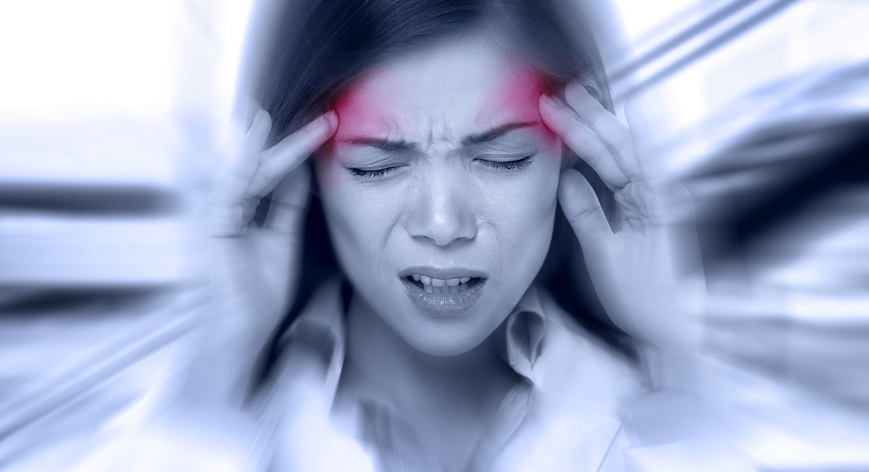Migraines cause intense, throbbing pain on one side of the head or at the back of the head. They can last for hours or days, and can take a serious toll on one’s well being. They can almost seem to come out of nowhere, without warning, and force you to put all other plans on hold. Luckily, there’s finally some great options that will stop them in their tracks, or even stop them from starting at all.

Nausea, vomiting, and hyper-sensitivity to light and sound are common symptoms of migraines as well. Migraines are thought to be caused from changes in the brainstem and the major pain pathway. Serotonin levels decrease and trigger the release of neuropeptides that stimulate a migraine or a headache.
Migraines can be induced by a variety of factors including genetics and environmental factors such as:
-Hormonal changes in women during pregnancy and at menopause. Hormonal changes from birth control pills can also trigger migraines in some women, or help relieve migraine symptoms for other women
-Foods including: caffeine, alcohol, chocolates, aspartame, MSG, and aged cheeses are known to trigger migraines
-Stress
-Strong sensory stimuli such as loud music, potent smells, bright lights
-Sleep irregularities
-Intense physical activity
-Weather changes or barometric pressure changes
MEDICATIONS TO STOP A MIGRAINE
-acetaminophen (Tylenol)
-nonsteroidal anti-inflammatory drugs (NSAIDs) including: asprin, ibuprofen, naproxen (Advil, Aleve, and Bayer)
-triptans (serotonin receptor agonists) including: sumatriptan (Imitrex), zolmitriptan (Zomig)
-Ergotamine derivatives (Cafergot)
MEDICATIONS TO PREVENT A MIGRAINE
-Anticonvulsants (topiramate)
-Antidepressants (Amitriptyline)
-Antihistamines (cyproheptadine)
-Beta-blockers (propranolol)
-Botulinum toxin (Botox)
-Calcium channel blockers (verapamil)
-Histamine
MAGNESIUM
A common treatment for migraines is magnesium. Persons with low levels of magnesium can experience exacerbated symptoms of migraines; thus it is important to get magnesium levels checked and to maintain proper magnesium levels when diagnosed with migraines. Symptoms of low magnesium levels include: fatigue, nausea, muscle cramping, tingling, muscle contractions, loss of appetite. Low magnesium levels are linked to migraines. Magnesium is a natural element and it is necessary for the body to function properly.
Magnesium is an important mineral used in the production of proteins, the transportation of energy, and in the functioning of bodily enzymes, muscles, and bones. Magnesium also helps to keep the heart healthy and the immune system strong. Magnesium is necessary for proper nerve function, and if a person is magnesium deficient – it may cause migraines. Magnesium is available in a variety of forms, including: capsule, powder, powder suspension, liquid, syrup, tablet, packet, and injection. Be sure to check with a medical professional before taking magnesium supplements or any other medication.
